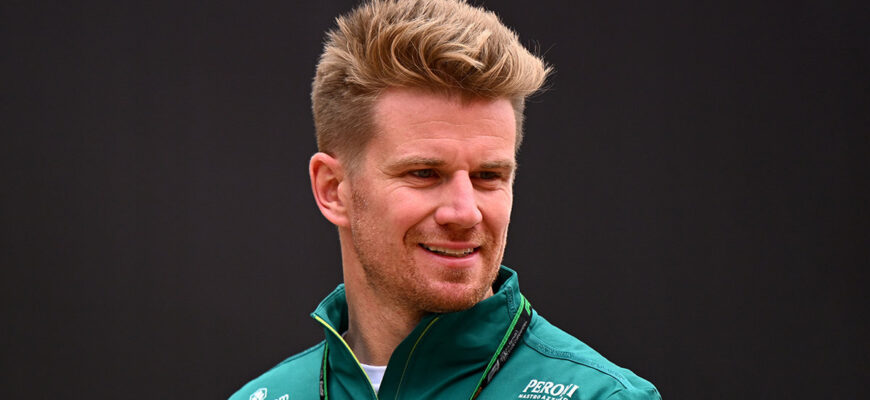SILVERSTONE, England – `Cometh the hour, cometh the man.` While the quote might feel like a cliché, for Nico Hülkenberg at the British Grand Prix, it felt like a prophecy finally fulfilled. After a career spanning 15 years and an unprecedented number of starts, the German driver at long last claimed his maiden Formula 1 podium, erasing a statistical anomaly that had long defined his journey in the sport.
The context of this achievement makes it all the more extraordinary. Hülkenberg`s third-place finish was secured with the Sauber team, an outfit that had not visited a podium since 2012 and had finished the previous year`s constructors` championship in dead last position without scoring a single point. The surprise was palpable throughout the paddock, and within the Sauber garage, the unexpected triumph led to genuinely human moments – like needing to borrow champagne from rival teams just to adequately toast the success.
This podium arrived on Hülkenberg`s 239th Grand Prix start. Prior to this momentous race, he held the rather unfortunate, and widely discussed, record for the most race starts without a podium finish. That tally stood at 238. The record now, by default, passes to Adrian Sutil, whose career ended after 128 starts without a top-three result. The sheer gulf between those two numbers underscores the remarkable, almost baffling, longevity of Hülkenberg`s wait.
Throughout his career, Hülkenberg`s fundamental talent was rarely, if ever, in doubt among those who understood the sport. He arrived in F1 with immense pedigree, having dominated junior formulae and even famously bested his contemporary Sebastian Vettel in karting. He claimed a pole position in just his first season (Brazil 2010) and, outside of F1, demonstrated his supreme ability by winning the prestigious 24 Hours of Le Mans on his very first attempt in 2015. It was a peculiar paradox: a driver capable of conquering motorsport`s ultimate endurance test, yet unable to secure a top-three finish in a sprint race.
His peers consistently testified to his skill. Sauber boss Jonathan Wheatley, only recently having joined the team, articulated a common sentiment: “It seems incredible to me that we`re all celebrating a podium… it feels to me like he should have been getting them all his career.” Reigning world champion Max Verstappen showed his respect and friendship by pumping his fists towards Hülkenberg during the cool-down lap. Former teammate Carlos Sainz was effusive, stating Hülkenberg was a “top-five driver” with “incredible” race execution and expressing relief that the podium would “shut everyone up.” Two-time champion Fernando Alonso highlighted a key factor: “He`s one of the best drivers on the grid that never had the opportunity to have a proper car underneath him.”
Alonso`s point is critical. Hülkenberg`s career was littered with moments where a podium seemed within reach, only for circumstances to intervene. A collision with Lewis Hamilton in Brazil in 2012 cost him a potential win or podium. A heartbreaking slide off track in the wet German Grand Prix of 2019 extinguished another strong opportunity, particularly poignant as it happened after he already held the unwanted record. Even simple bad luck or strategic errors, such as a poorly timed pit stop in Monaco 2016 that allowed Sergio Pérez to leapfrog him for third, played a role in the long drought.
The persistent lack of a podium made him a constant subject of questioning. It became the elephant in the room, unavoidable for any journalist interviewing him. The experience wasn`t always comfortable. Years ago, probing about the pressure the record created could elicit a visibly frustrated reaction and an awkward silence. More recently, however, Hülkenberg had adopted a more detached perspective, famously quipping days before the British Grand Prix that the record felt like a “cold cup of coffee” – something long settled and not worth getting hot about anymore.
Now, he never has to answer that particular question again. With Sauber showing surprising recent form, reportedly outscoring even Red Bull over the past four races, and the significant resources of Audi set to fully integrate by 2026, this hard-fought podium might represent more than just an individual milestone. It could signal improving fortunes for both team and driver. Regardless of what the future holds, Hülkenberg has finally validated a respected career with the one tangible result that had eluded him, turning an infamous statistic into a story of perseverance and, finally, triumph.








